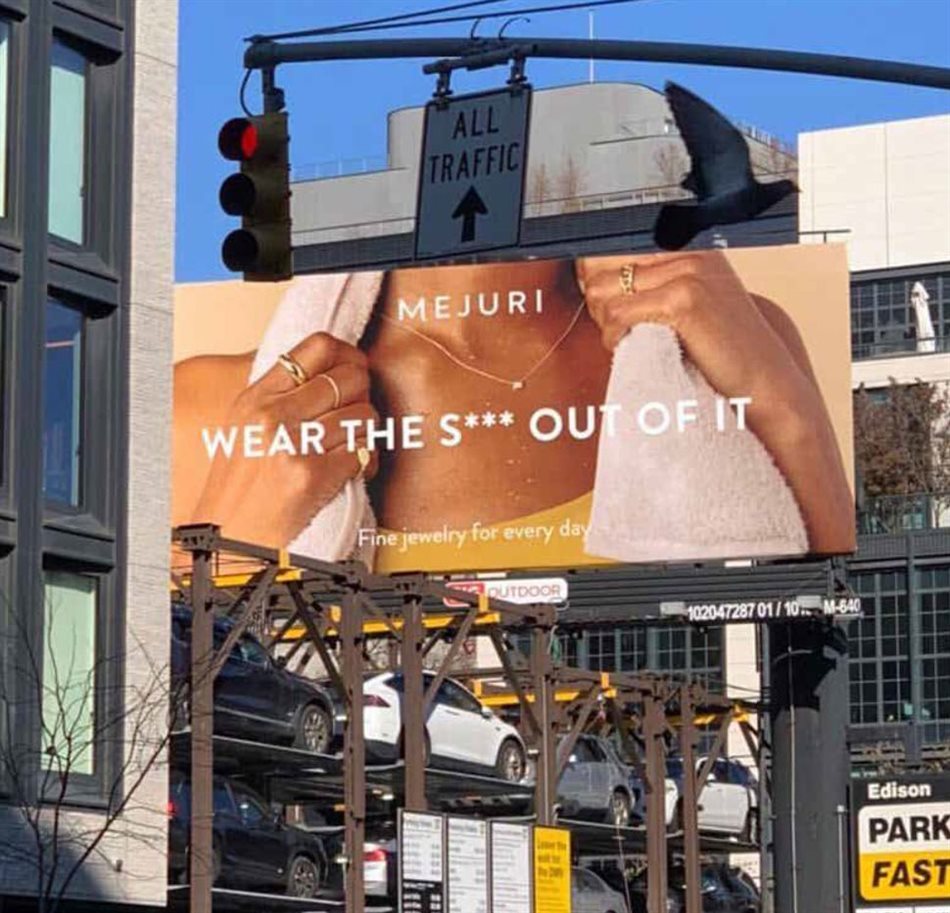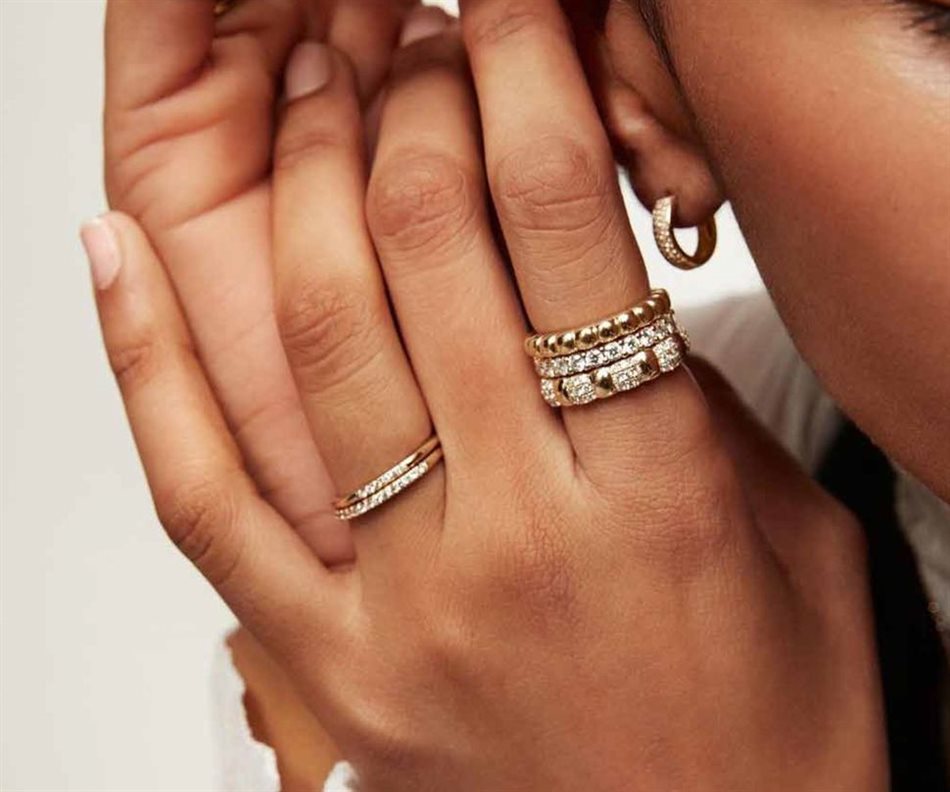In the 10th instalment of our annual ‘Challengers to Watch’ feature, we identify 20 rising companies from around the world and explore the broader trends, opportunities and threats to the status quo they represent.
Our roundup covers an expansive range of categories, markets and geographies, but all these companies share a firm rejection of ‘best practice’ and an understanding of the imperative to make their own rules.
Mejuri – for challenging outdated standards
Buying yourself fine jewelry is ridiculously indulgent — better just wish and hope for a little velvet box to be placed in your hands than buy it, right?
Not according to Mejuri, a fine jewelry brand that has risen through the ranks of luxury by telling women to ‘buy yourself the damn diamond’ and making it possible for them to do so through fair pricing. If that rings even the slightest of bells, it might be because in the early-2000s classic, How to Lose a Guy in 10 Days, an advertising executive is trying to win the business of a diamond account with the same idea Mejuri was founded on — challenging the industry standard of targeting men with a campaign declaring, ‘They say, ‘A diamond is forever.’ We say, ‘A diamond is for everyone.’’ The idea is immediately dismissed based on the notion that promoting diamonds as something for everyone makes them common and strips them of their status. And this twisted logic prevailed for another decade before the founders of Mejuri thought better of it.
According to Harper’s Bazaar, ‘Mejuri went from your Instagram feed to, well, everywhere’, selling 3 million pieces of jewelry since its inception in 2015, and is getting ready to unveil its 11th brick-and-mortar location (Forbes). The meteoric rise indicates women were more than ready to ditch the middleman and take control over the amount of sparkle in their lives. So why did it take so long for someone to challenge the industry standard?
Mejuri has embraced the role of the Enlightened Zagger, intentionally breaking down the well-established walls around fine jewelry not only by inviting in a new target audience but also by using sustainable materials like recycled 14k gold and sterling silver, which is part of why it can afford to offer lower prices. The female founders made these categorically uncharacteristic moves confidently (correctly), assuming that other women shared their view of jewelry as ‘an expression of self’ rather than an expression of status.

And they haven’t stopped seeking what people want from this space and making it a reality — Mejuri has evolved with its consumers. The company started out selling little whisps of gold during a time when the tinier the jewelry; the more millennials wanted it. But when the Y2k trend came back around during the start of the pandemic, it faced the changing jewelry landscape and leveled up with new designs for statement pieces to add to the basics the brand is known for. In British Vogue, cofounder Noura Sakkijha discusses Mejuri introducing their flourishing men’s collection after noticing both men and women becoming more focused on ‘making their look personal through piercing, tattoos, and jewelry.’
She credits their continued success in launching new products to their key difference of designing jewelry ‘not to wear for special occasions, but everyday jewelry meant to be layered’ (Women’s Wear Daily).
The intent to layer was the catalyst for yet another shift Mejuri has brought into the fine jewelry space people have been craving. Wanting to give people the freedom to experiment with ease, Mejuri stores have eliminated the traditional barriers of locked glass cases and supervised viewing. Instead, they showcase the products in the open where consumers can feel them, touch them, and try them on to their heart’s content. And according to Forbes, it’s working — the average order volume increases 17% for inperson over digital purchases. Overall, the brand was 179% over financial targets in the retail channel for January and February 2022, supporting its plans to double the number of brick-andmortar locations.

Mejuri has reimagined the fine jewelry industry and broken the mould to empower those wearing the jewelry over those traditionally buying it. From targeting women, to pricing its goods based on quality without up-charging to indicate luxury, to liberating its pieces from glass cases in its stores, Mejuri continually listens to and learns from its consumers and sets the pace for others in the space.
As we enter 2023 looming with economic gloom, fairly priced luxuries might be just what many consumers need, and it will be interesting to see what empowerment tactics Mejuri employs next. At last, someone acted on the insight we were all so quick to dismiss in How to Lose a Guy in 10 Days — here’s to seeing what this known-for-gold jewelry maker does next with its Midas Touch.
